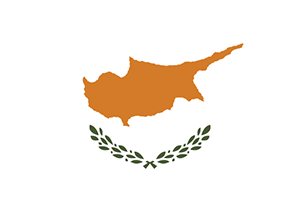- How the official decision of SEN relates to the agreed EASIE operational definition
- Proxy indicator used
- What 'out of formal education' means
- Private sector education
- ISCED level age ranges
- 2012/2013 and 2014/2015 data background information
How the official decision of special educational needs (SEN) in the country relates to the agreed EASIE operational definition
Operational definition
An official decision leads to a child/learner being recognised as eligible for additional educational support to meet their learning needs.
According to the Education and Training of Children with Special Needs Laws 1999–2014, a child/learner is considered to have special needs and is eligible for additional support if they have a serious learning, special learning, functioning or adjustment difficulty, caused by physical, intellectual, psychological or other disabilities, and have a need for special education and training.
A child/learner has learning, special learning, functioning or adjustment difficulties if:
- they have seriously greater difficulties compared to the majority of children/learners of the same age;
- they have a disability which excludes or hinders them from using the educational means that schools generally provide for children/learners of the same age.
Criteria for an official decision of SEN
- There has been an educational assessment procedure involving a multi-disciplinary team
- The multi-disciplinary team includes members from within and external to the child’s/learner’s (pre)school
- There is a legal document which describes the support the child/learner is eligible to receive and which is used as the basis for planning
- The official decision is subject to a formal, regular review process
Educational assessment procedure in the country
In order to get an official decision, a child/learner needs to be referred to the District Committees of Special Needs Education. The committees assign multi-disciplinary teams to assess the child/learner in order to decide whether they are eligible for support.
How the multi-disciplinary team is comprised in the country
Depending on the child’s/learner’s individual case, multi-disciplinary teams may comprise classroom teachers, special education teachers, speech therapists, educational or clinical psychologists, doctors, neurologists, physiotherapists, occupational therapists and any other professional needed. The multi-disciplinary teams may include members from within or external to the child’s pre-school/learner’s school.
The legal document used in the country to outline the support that the child/learner is eligible to receive
District Committees’ official decisions, which are considered to be legal documents, state the type of support needed, as well as the educational placement that is most suitable for the child’s/learner’s needs.
How the document is used as the basis for planning in the country
The Ministry of Education takes the decisions into consideration in order to assign specialists, as well as special education co-ordinators in mainstream or special schools. Furthermore, according to the decision taken, all necessary planning is carried out to provide any other additional support, e.g. care assistants, specialised equipment, school transport, etc.
The formal, regular review process in the country
According to the aforementioned law, children/learners are re-assessed every two years or earlier if needed.
Proxy indicator for the 80% benchmark used for the country’s data collection
The EASIE work uses an 80% benchmark of inclusive education. This is defined as:
An inclusive setting refers to education where the child/learner with SEN follows education in mainstream classes alongside their mainstream peers for most – 80% or more – of the school week.
Proxy indicator used
Placement in a mainstream class implies over 80% or more.
Detailed description of what ‘out of formal education’ means within the country
The 2011 International Standard Classification of Education (ISCED) defines ‘formal education’ as follows:
[…] education that is institutionalised, intentional and planned through public organizations and recognised private bodies and, – in their totality – constitute the formal education system of a country. Formal education programmes are thus recognised as such by the relevant national education or equivalent authorities, e.g. any other institution in cooperation with the national or sub-national educational authorities. Formal education consists mostly of initial education […] Vocational education, special needs education and some parts of adult education are often recognised as being part of the formal education system. Qualifications from formal education are by definition recognised and, therefore, are within the scope of ISCED. Institutionalised education occurs when an organization provides structured educational arrangements, such as student-teacher relationships and/or interactions, that are specially designed for education and learning.
(United Nations Educational, Scientific and Cultural Organization and UNESCO Institute for Statistics, 2011, International Standard Classification of Education ISCED 2011, p. 11).
Do the country definitions of formal, non-formal and informal education differ from the ISCED definitions?
No, Cyprus uses the same definitions as ISCED.
How specific cases – such as home-educated children/learners – are considered
Home-educated children/learners are considered to be in formal education.
Provision of data on private sector education
The data collection covers the public sector only.
ISCED level age ranges
The following are the most common (pre)school entrance ages and (pre)school leaving ages for the different ISCED levels:
Age range in the country at ISCED level 02 (pre-primary): 3 to 5
Age range in the country at ISCED level 1: 6 to 11
Age range in the country at ISCED level 2: 12 to 14
Age range in the country at ISCED level 3: 15 to 17
2012/2013 and 2014/2015 data background information
This country updated its background information for the 2014/2015 and 2016/2017 datasets. PDFs of the background information for the 2012/2013 dataset and the 2014/2015 dataset are available.
